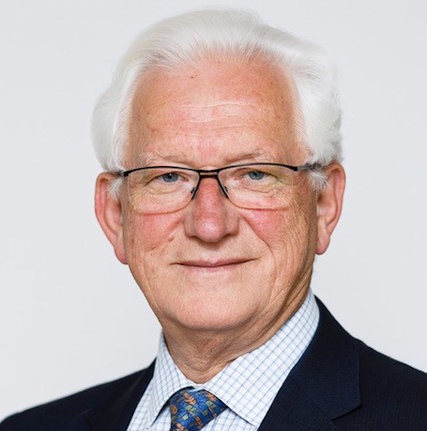Boris Johnson’s recent comments that recycling plastic materials “doesn’t work” has potentially added further complexity to the already challenged recycling sector. The PM, who was answering children’s questions ahead of COP26, went on to say that recycling “is not the answer” to threats to global oceans and marine wildlife.
The resulting fallout has triggered heated comments from both sides of the plastics recycling fence.
Starting with Boris Johnson’s first statement – that recycling plastic materials “doesn’t work” – this is clearly not the case as the figures show that recycling is working in the UK and the EU. With 67% of packaging recycled last year we are close to our target of 70% of all packaging being recycled by 2025.

However, the PM is correct when he states that it’s “a mistake to think society can recycle it’s way out of the plastic pollution problem”. We already have and continue to need multiple strategies to address the way we use and reuse packaging rather than the old linear model of use and discard.
Innovation
On the upside a lot of innovation in substitution, re-use, refill, recovery of carbon content and energy recovery is happening right now to address the problem.
There is, however, no single easy fix to solve the global environmental price we are paying for 60 years of being told by businesses that plastics are cheap and can be discarded at the end of the first use.
That is one of the key roadblocks to managing our plastic waste, the other is the lack of clarity around who should be held accountable and which streamlined strategies will have the most impact.
Systemic approach
According to Dr Lesley Henderson, who leads the Sustainable Plastics Research team at Brunel University London, we must develop a more systemic approach to waste. As an expert in Communications and Social Change Lesley argues that we can’t bring about sustained change without first developing a more comprehensive understanding of how and why consumers interact with specific plastics products and crucially how they manage plastics waste in their domestic setting.
Dr Henderson is currently undertaking research in the UK and Europe to gain a clearer comprehensive picture of how people engage with plastics packaging. She is mapping public knowledge and awareness as well as perceptions, behaviours, and emotions to identify drivers and misconceptions.
Recycling is about more than waste disposal and relates to identities and emotional engagement. In her view, there has never been a better time to address recycling practices as the increased generation of plastic waste during the pandemic created new challenges and also potentially new opportunities.
She points out that if we are serious about transitioning to a circular economy then we need to look at the disruption caused by the pandemic and find out if people have altered their behaviours regarding retaining and repurposing plastics packaging. We also need to understand the possible impact of COVID-19 on purchasing decisions in light of the impact of the pandemic on household budgets.
Communication
According to Dr Henderson, whose research is co-funded by NERC and the Smart Sustainable Plastic Packaging challenge at UK Research and Innovation, the role of communication is key here. As she states: “Media have played a vital role in bringing the plastics pollution crisis to public and policy makers attention. If we wish to build on this, then we need to get the messaging right and we have seen from other issues particularly in the field of public health that media can help normalise certain behaviours, stigmatise others, and bring about social change.”
The UK Prime Minister’s comments might fuel the idea that there is little point in making small changes in how people use and dispose of plastics in their everyday lives. “I know from my research that consumers frequently feel overwhelmed by the sheer quantity of messages about waste and recycling. There is also a great deal of confusion for example about the language of recycling – not everyone knows what ‘single use’ means or what counts as ‘biodegradable’. The danger is that without clarity and harmonisation of messaging people will simply feel powerless and this can result in fatigue and lack of action despite the best intentions.”
From Ed Kosior’s perspective there appears to be a lack of ‘big picture’ thinking such as the undeniable fact that plastics play a key part in preserving food, which, represents a large carbon footprint loss if these foods are spoilt or contaminated. Having said that, we do need to drastically reduce our dependence on single use plastics, which is where collection and recycling play a vital role that needs to be expanded.
There is an urgent need for Governments around the world to establish effective waste management first and foremost. Recycling businesses can then join in on recovering the resources for multiple re-use. Brand owners too have a major responsibility to make their packaging effectively recyclable to the correct level, not just notionally so. In addition, the many wasteful single use plastics that are obviously discarded should be eliminated and banned from production globally by the regional Governments.
Media reporting


As Dr Henderson points out media reporting can play a central role in the recycling challenge. Media messages help shape the context within which progress can be made. For example, the heightened attention to environment challenges generated by COP26 could be built upon successfully with explicit links made between recycling of plastics, food security, plastics in the oceans and mitigating the climate emergency.
Recycling is vital if we are to minimise producing virgin plastics – in fact every tonne of recycled plastic saves 1 to1.5 tonnes of CO2e by avoiding virgin plastics production and disposal.
Henderson is hopeful that her research will help contribute to better understanding of the obstacles to meeting recycling targets and provide lessons in how to develop more effective communications based interventions.
Businesses have the opportunity to develop sustainable alternatives and we need to define how each touch point in plastic packaging’s life cycle can be re-configured to empower people to better interact with plastic waste and become accountable for the way all packaging is managed.
Last, but not least, all changes should be based on science CO2e metrics rather than marketing appeal to consumers.









Subscribe for free